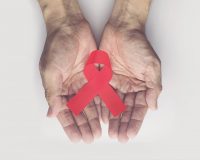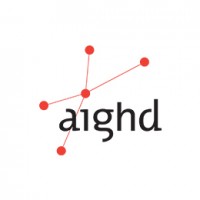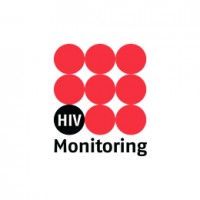
Summary AGEhIV webinar 2023
On June 21, 2023, we organized a webinar in which 30 AGEhIV participants joined online. Researcher Marc van der Valk and participant Cees Smit talked to principal investigator Peter Reiss and to participants watching online. They spoke about the research and the theme “comorbidity and aging with HIV”.
Results of the study
We all get older, but around 2010 it was thought that this might happen more quickly in people living with HIV. To investigate this, the AGEhIV cohort study was set up in which participants with HIV are compared with participants without HIV. The study has now been in existence for 12.5 years and important findings have been generated during that time. For example, the number of additional illnesses, or comorbidities, turned out to be higher among participants with HIV, but the difference with participants without HIV was smaller than previously thought. The participation of the group without HIV is a key strength of the study. Because they are very similar to the participants with HIV in terms of age, gender and lifestyle (including smoking, alcohol use and sexual preferences and risk behaviour), any additional effect of HIV and HIV treatment itself on the risk to develop comorbidities can be reliably assessed. For example, we saw that the effect of HIV and HIV-related factors, such as previous use of medication against HIV (i.e.antiretroviral drugs) with significant side effects, played a role in the risk of developing some, but not all, comorbidities. In most cases, having experienced long periods of untreated or insufficiently treated HIV and severely reduced immunity also increased the risk for many comorbidities.
If you would like to read more about the results of certain parts of the study, have a look at Results at this website. We publish a summary of every study that is newly published in a scientific journal on our website.
COVID-19 substudy
The study with its highly comparable group of participants without HIV also proved important when the COVID-19 pandemic emerged. In the COVID-19 substudy (which included about 570 AGEhIV participants), we saw that our participants with HIV did not have an increased risk of contracting COVID-19 in the first year of the pandemic before vaccines had become available. It was also found that participants with and without HIV responded equally well to the new COVID-19 vaccines. All in all, positive news for people with HIV who, thanks to their HIV treatment, have well-suppressed HIV and a reasonably recovered immune system.
Challenges for the future
Our panelist and participant Cees shared his lived experience and raised an important topic for the future: how do we organize the transition to elderly care for people with multiple comorbidities, as is often the case for people with HIV? He shared with us his circle of contacts, an illustration of the large number of health care providers he regularly deals with. Can’t this care be bundled in the future? This question cannot be answered directly by the AGEhIV study, but the study results certainly contribute to the importance of initiating further discussion about such matters. Precisely because there are still unanswered questions, it remains important to keep talking to each other about the things that concern us and, in particular, our participants.
Appreciation
It was nice to hear during the webinar that many participants appreciate that the study was set up at the time and that in this way they have been able to contribute to the development of new knowledge in the field of HIV. Vise versa, we greatly appreciate all participants who have committed themselves to the AGEhIV cohort study in recent years!
If you have any questions or comments for us regarding the webinar or your study participation, please contact one of the research nurses or study physicians via agehiv@amc.uva.nl.
Would you like to know more about the theme of ‘aging with HIV’? In September 2023, the HIV Monitoring Foundation is organizing a webinar on this theme. Stay tuned to their website and social media for the exact date and details on registration. Additionally, on August 2nd, a panel discussion about future care for the elderly with HIV will take place as part of Amsterdam Pride Week (see: https://www.hivvereniging.nl/longtermsurvivors/agenda/14029-hiv-positief-de-ouderenzorg-in-paneldiscussie-tijdens-senior-pride).



